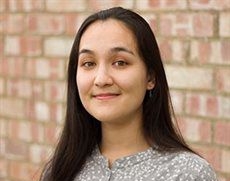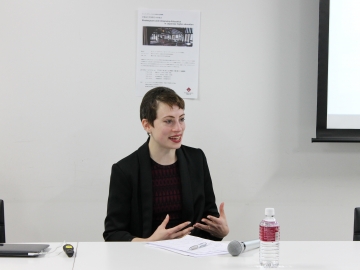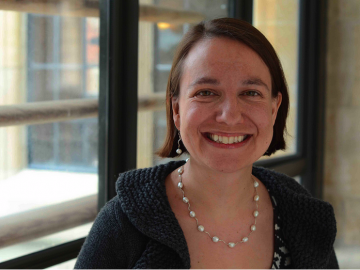Dr. Jessica Chiba, Leverhulme Early Career Fellow at the Shakespeare Institute, delivered her lecture title “Hamlet, Translation, and the Cultural Conditions of Thought” from 9:00 to 10:30 on November 11, 2021. Undergraduate and graduate students (mainly from the School of International Liberal Studies and the Graduate School of Letters), and faculty members attended the lecture in person. There were also a number of people, mostly from other academic institutions, who participated through Zoom. Dr. Chiba’s lecture was very informative, and the Q&A session afterwards saw many questions on different aspects of the translation of literature into Japanese.
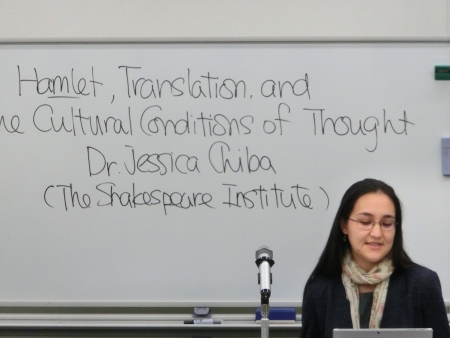
Dr. Chiba began by explaining how her research on translation aims to question the hegemony that exists in the relationship between source text and translation. Her work is informed by Lawrence Venuti, who has drawn attention to the invisibility of the translator. Dr. Chiba then considered, as a translation crux, the verb “be” in Hamlet’s fourth soliloquy and the difficulty in translating this into Japanese. Examining the notion of “being” from a translator’s point of view brings to the forefront concepts and logic that are taken for granted by those whose mother-tongue is English. Both Western and Japanese views of the Japanese language in the Meiji period, represented by the writings of the Reverend Joseph Edkins, tended to subscribe to the idea of unilateral cultural evolution; Dr. Chiba rejected this kind of linguistic determinism while referring to the ideas of Wittgenstein to suggest how language might influence thought. Wittgenstein explains how philosophical problems can arise when language is removed from its widely accepted syntactical context, as is the case of “To be or not to be.” This would mean that the untranslatability of the phrase is not due to the inferiority of the Japanese language, but because of the way English is used to create the phrase. Dr. Chiba followed this with an examination of the reception of Hamlet in Japan to explain how attitudes towards the play changed as English and Western philosophy was introduced widely into Japan. She ended her lecture by suggesting translation’s ability to underscore how Shakespeare, through the way he uses the English language, brought to focus a being-centered way of thinking.
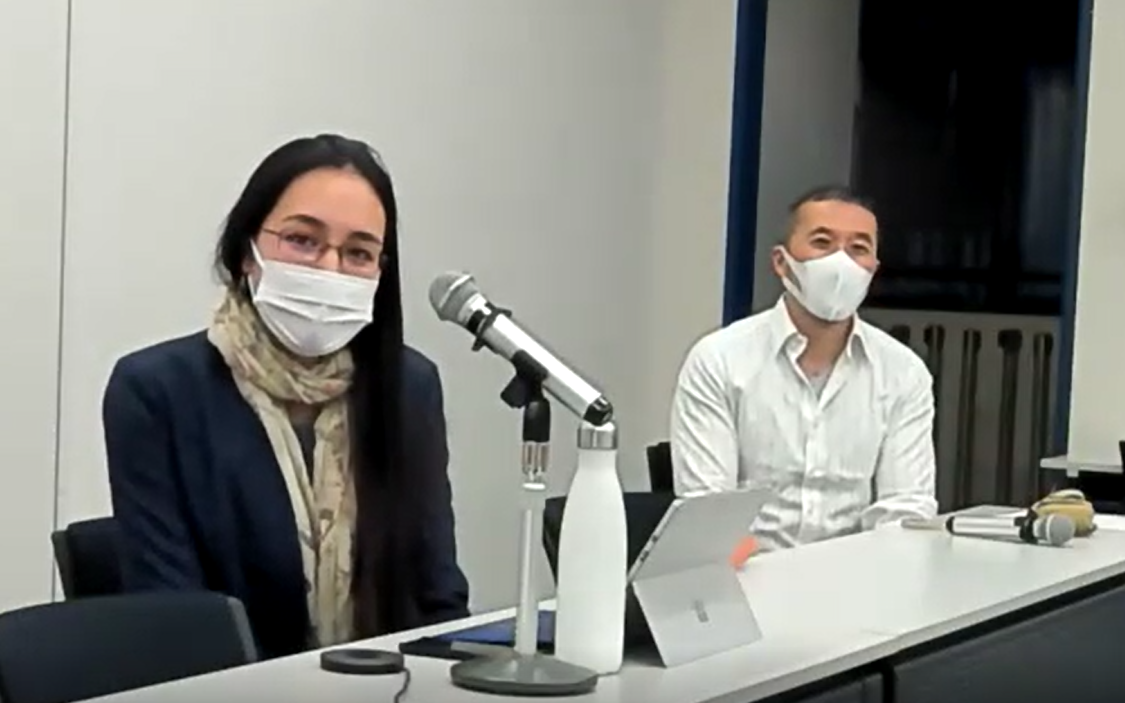 A very lively half-hour question and answer session followed the lecture. The topics discussed ranged from the application of Dr. Chiba’s arguments about translation to Shakespeare translated into different media, particularly into prose as in the case of Charles Lamb; the ways in which the feminine and masculine language in Japanese might affect Dr. Chiba’s arguments; the ways in which translation of puns may help illuminate the text; and Charles Wirgman’s translation of the fourth soliloquy. Dr. Chiba very kindly stayed on afterwards to speak with each individual student and, with the two PhD students, discuss their research.
A very lively half-hour question and answer session followed the lecture. The topics discussed ranged from the application of Dr. Chiba’s arguments about translation to Shakespeare translated into different media, particularly into prose as in the case of Charles Lamb; the ways in which the feminine and masculine language in Japanese might affect Dr. Chiba’s arguments; the ways in which translation of puns may help illuminate the text; and Charles Wirgman’s translation of the fourth soliloquy. Dr. Chiba very kindly stayed on afterwards to speak with each individual student and, with the two PhD students, discuss their research.
Please click here for the event recording.
Event Overview
- Date and time: November 11, 2021, 9:00 – 10:30 (JST)
- Language: English
- Lecturer: Dr. Jessica Chiba (The Shakespeare Institute, Leverhulme Early Career Research Fellow)
- On-site Venue*: 3rd Floor Conference Room, Building 8, Waseda University
* Only for the students of Waseda University. - Online attendance is open to the public through Zoom. Participation is free.
